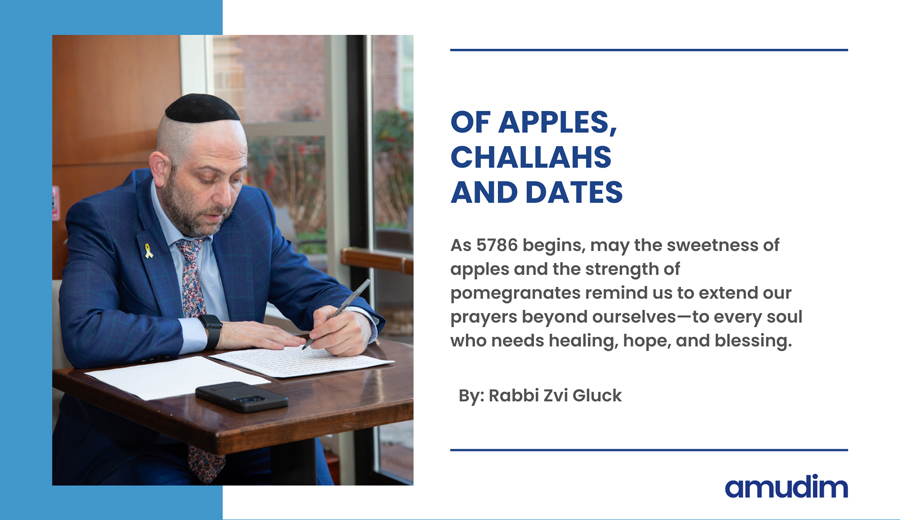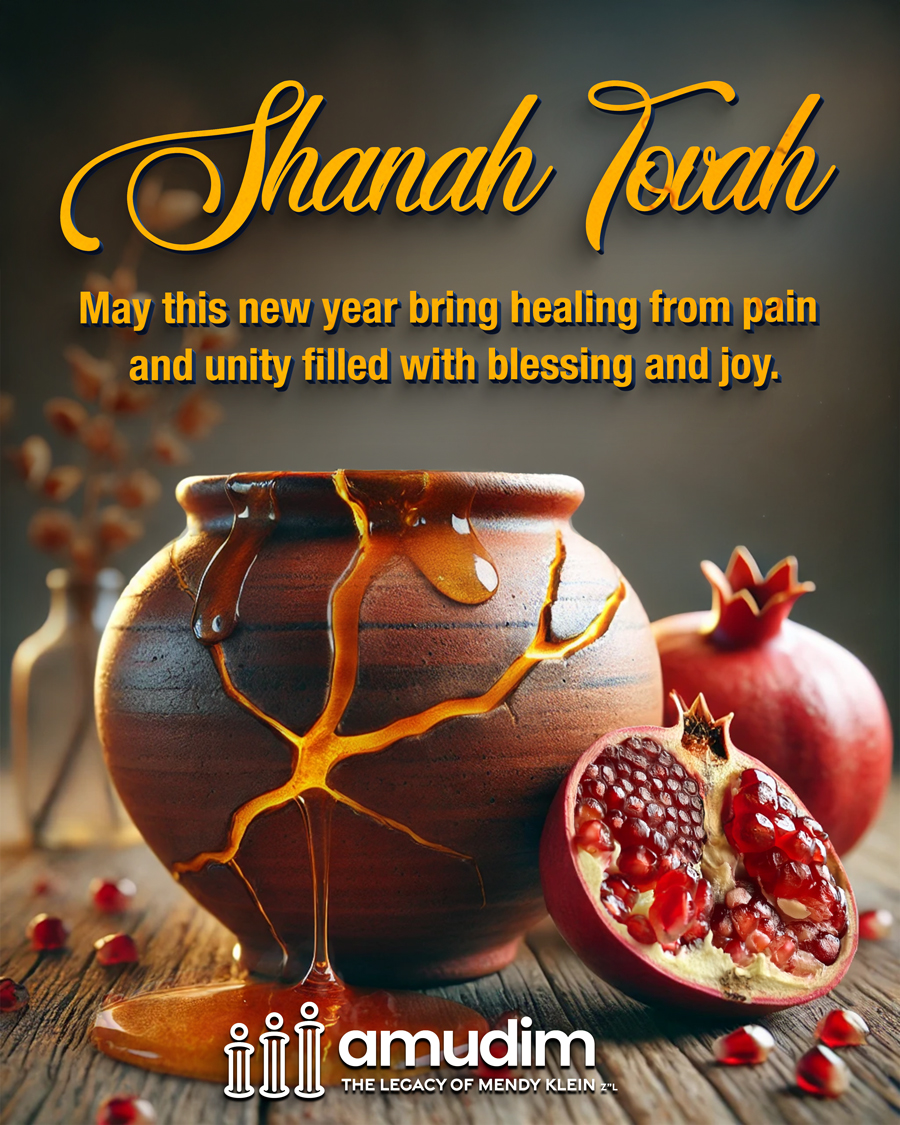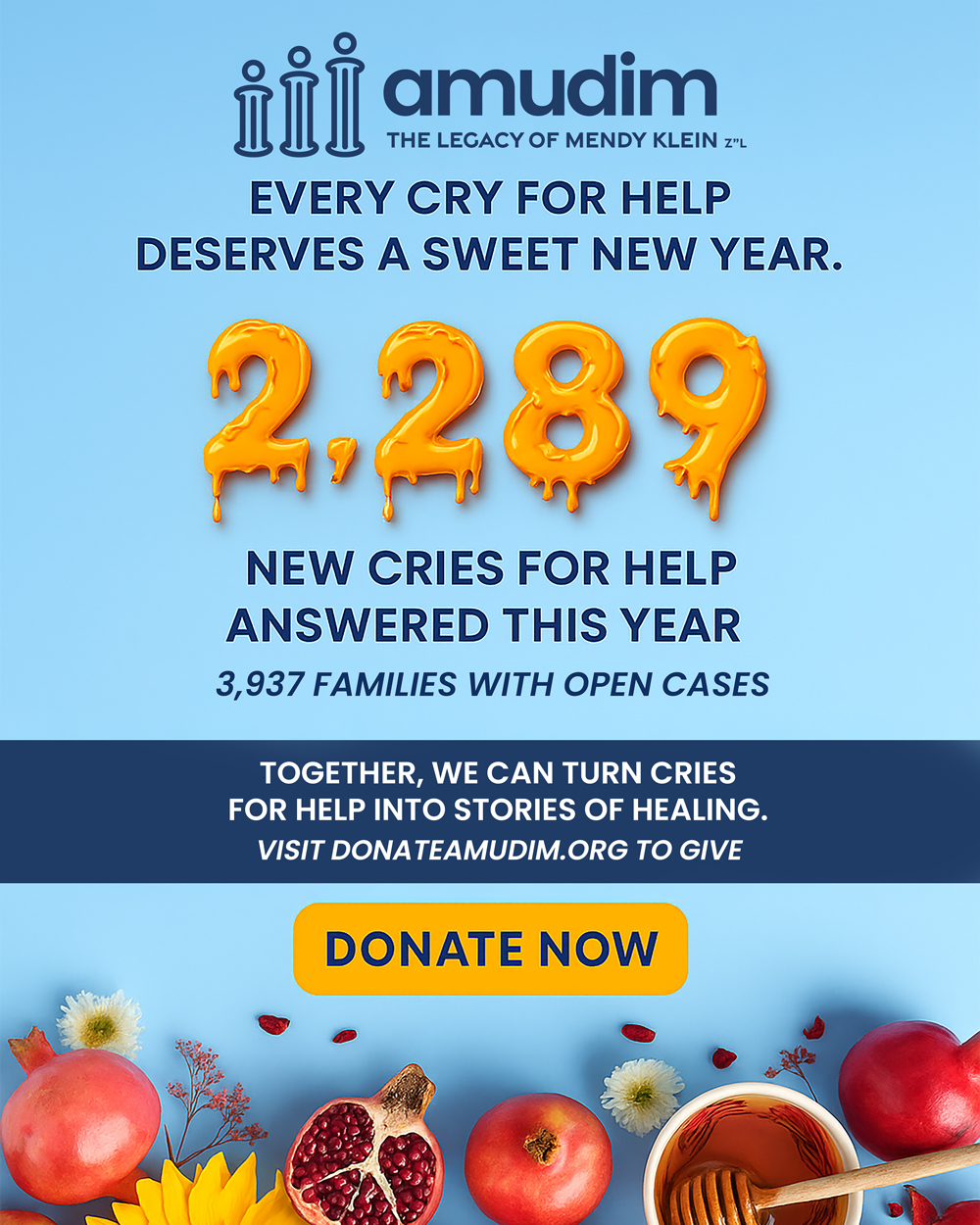
Of Apples,
Challahs
and Dates
By Rabbi Zvi Gluck
Throughout the year, our lives are filled with acts of symbolism. Our weekly observance of Shabbos reminds us that Hashem created the world in six days and rested on the seventh. Our weeklong consumption of matza on Pesach bears testament to our ancestors’ hasty exit from Mitzrayim, their unrisen dough slung over their shoulders. And at every wedding, we remember that our joy cannot be complete as long as we are in galus, with the chupah coming to its bittersweet conclusion as the choson stomps on a glass.
Rosh Hashana is one of those yomim tovim that overflows with symbolism, particularly when we sit down at night to a table where our simanim take center stage. We eat apples dipped in honey, and partake of pomegranate seeds, (doing our best not to drip any juice on our clothing.) There are carrots, whether you go with the customary tzimmes or the more contemporary muffins, and of course fish, (bodies and heads are a yes, tails are a major no-no.) Depending on your minhagim, there might be dates and figs and possibly even some leeks and spinach – the list seems to get longer and longer with every passing year, as clever individuals find new opportunities to ask Hashem to shower us with his many brachos. But maybe it isn’t more simanim that we need – maybe we need to add more meaning to the simanim that we already have.
Would it be too much for me to ask that when you eat those sticky apple slices and as a prayer for a year of sweetness, that you keep the many members of our community who struggle daily with issues of mental health, as well as abuse and addiction in mind? That when you ask Hashem that our enemies cease to exist when you pass around the dates or the beets, that you throw in an extra prayer for evil acts to be eradicated from our midst as well? And when you have that taste of carrots, and that handful of pomegranate arils, and request that the Ribono Shel Olam increase your merits, can you expand that wish beyond your immediate family to acheinu bnei Yisroel who so desperately need our help?
Of course, there is one other element of the menu on Rosh Hashana that oozes symbolism – the round challahs that grace our table. Putting aside the latest sourdough trends for now, our challahs during the year are typically braided loaves, but from Rosh Hashana through Succos, circular challahs are de rigueur and I’ve heard multiple reasons why we shape our challahs differently during this time of year. Some people suggest that the round challah is reminiscent of the circular nature of the year, with fall fading into winter, which ultimately leads to spring before summer takes us back to fall again. Others are of the opinion that a round challah resembles a crown, a fitting symbol for Rosh Hashana, whose main theme is the annual coronation of Hashem as the monarch of our earthly realm.
But I would like to suggest another idea for why our Rosh Hashana challahs are round in shape, with an explanation brought out by Rabbi Lawrence Haijoff. Typically, the word “shana” is used to as a noun, to mean “year,” but it can have alternate meanings as well. When used as a verb, “shana” can refer to either repeating or changing something, two concepts that bring home an auspicious and timely lesson. As we look ahead to 5786, we don’t want it to be a repeat of the year that we just completed. We want to build on our past successes, and learn from our mistakes, making the coming year one that is filled with positive changes. Our round challahs remind us not to fall into the same circular pattern of just repeating what we did last year, and instead, to rise to the challenge and become even better versions of ourselves, finding new ways to bring nachas to the Ribono Shel Olam.
May the year 5786 bring an end to our pain and sorrow, and may it be a year where we can all be blessed with simcha and bracha as we join together to help those who need us most.
Zvi Gluck is the CEO of Amudim, an organization dedicated to helping abuse victims and those suffering with addiction within the Jewish community and has been heavily involved in crisis intervention and management for the past 24 years. For more information go to www.amudim.org.

Shanah Tovah from all of us at Amudim.
May this year bring healing from pain, and unity filled with blessing and joy.
Together, we can create a future where brokenness becomes strength and light shines through the cracks. 🍯🍎
Wishing you and your family a year of health, happiness, and peace.



